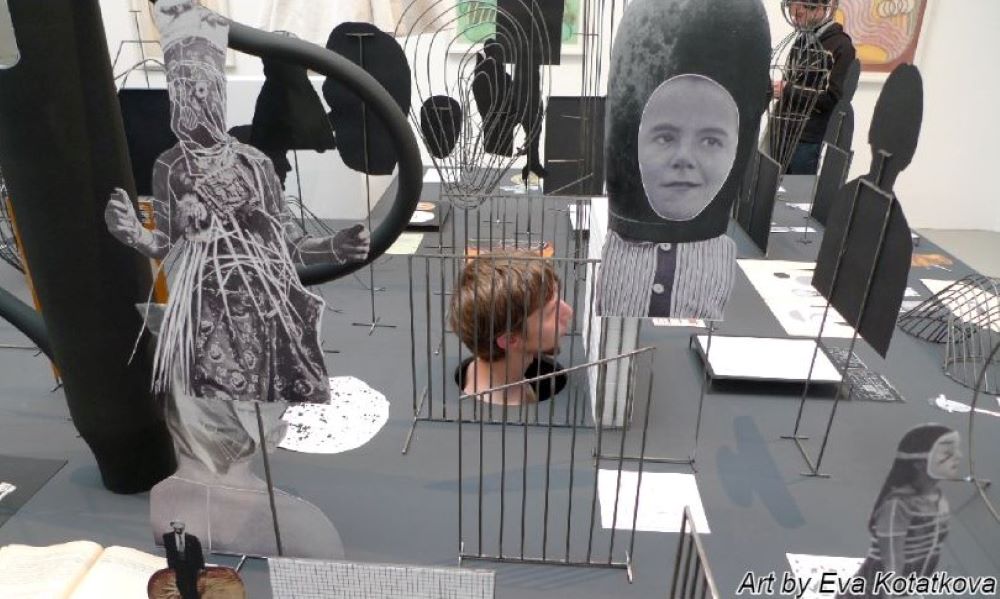All communities are closing in, without realising that religious and national differences are not the cause of problems and conflicts, but in fact the issue is in the limited awareness within that same community.

Sladjana Kavaric Mandic
If we look at the growth trends of young people with a university degree, it might seem like Montenegrin society is progressing. If you look at the rural-urban relationship and the growth of migration to the cities, it may also indicate a tendency of modernisation. What worries, however, me is that neither the number of diplomas nor leaps from the field to the lacquered shoe mean anything for social emancipation.
Levels of religiousness are growing in Montenegro, and the sudden boom and aggressive politicization speaks volumes about the nature and foundation of that religious pattern sown in the 1990s. Regardless of the multiethnic map of society, research shows that many educated, globally oriented and advanced young people are increasingly opposed to mixed marriages, and therefore contribute more to drawing invisible lines between culturally, religiously and nationally distinct individuals (http: //library.fes .de / pdf-files / bueros / belgrad / 15293.pdf.
Why doesn’t tolerance grow with education? And why is it that educated people cannot and do not want to escape from the tribe (pre)consciousness?
The answer to these questions is not simple, because there are many factors which lead towards these consequences. For example, research shows that Montenegrins live with their parents for a very long time, leaving the warm nest at the average age of 33, which means that they spend almost half of their lifetime in the position of a child (https://ec.europa.eu/eurostat/statistics-explained /index.php?oldid=494351#Geographical_differences). You don’t have to follow any research to understand how, even after independence, parents do not contribute to the autonomy of a long-grown up “child”, no matter how old and economically independent. On the contrary, they are much more likely to try to influence the important decisions of the long-adult.
Without underestimating the statistics, but in fact in the desire to bring the statistics to life, rather than leaving them as numbers to worry about and then go off to look at someone else’s, distant yard, I will give a few examples from my own vicinity.
Almost every person of Islamic faith around me considers themselves endangered by extreme Orthodox worshipers. They have the right to do so, because if not directly, then passively-aggressively a large number of Orthodox people would not like a daughter-in-law or son-in-law of another religion, especially not Islamic, for which there are already bad epithets and an and almost general consensus on different cultural foundations. If one would not accept an Other into their family, then any other acceptance is hypocritical to say the least.
But this is just one plot line. What the representatives of the Islamic community are not entitled to is to close themselves inside their own group, and exclude the “non-Orthodox Orthodox”, meaning a large number of those who do not care about religion, but have Christian names, which puts them in the group of those you pray won’t occupy your child’s heart. They will be occupied by some other occupiers, right? An economically stable son-in-law or daughter-in-law from the diaspora, who vowed to preserve tradition and pure blood, just like an Orthodox son vowed eternal love to his mother and she vowed him an eternal hot meal, which she would never offer to the daughter-in-law in law first, because even within “our” blood, you know which one is more so ‘yours’ and closer.
“Blood circulation” actually forms a vertical direction from ancestor to descendant. My point is that authoritarian reflexes are passed down from generation to generation, which no bachelor’s degree can change. And these reflexes are layered, in all denominations, mutually conditioned and politically profitable. All of our little degrees are on the surface, while deep below reigns the transgenerational trauma of war, as well as the patriarchal trap of domination within the family, clan and tribe.
All communities are closing in, without realising that religious and national differences are not the cause of problems and conflicts, but in fact the issue is in the limited consciousness within that same community, which in its destructive logic finds problems in diversity, undermining in connections, and a reason for an ending within a beginning.
Progress is a matter of resistance, not compliance.
Slađana Kavarić Mandić is a PhD student and editor of the Normalizuj.me portal



Leave A Comment